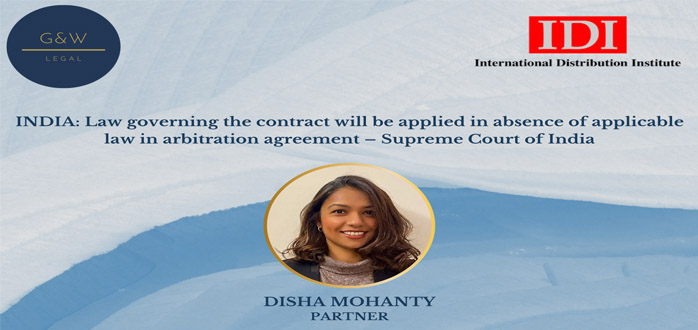
INDIA: Law governing the contract will be applied in absence of applicable law in arbitration agreement – Supreme Court of India
In a judgment issued on 18 March 2025, the Supreme Court of India (“Supreme Court”), reinforced that when arbitration agreements contain seemingly inconsistent provisions on governing law and venue, courts must harmonize them to uphold contractual intent.
The dispute in this case arose from an International Exclusive Distributor Agreement executed between the petitioner, a company incorporated in Colombia, and the respondent, an Indian company. Under the agreement, the governing law clause provided that the contract would be governed by Indian law, with exclusive jurisdiction vested in the courts of Gujarat, India. However, the arbitration clause set out a dispute resolution mechanism providing for conciliation and arbitration before the Conciliation and Arbitration Centre of the Chamber of Commerce in Bogotá, Colombia, with awards to be rendered under Colombian law. Conflicting interpretations of these clauses led the petitioner to approach the Supreme Court under Section 11(6) of the Arbitration and Conciliation Act, 1996, seeking appointment of an arbitral tribunal. Respondent opposed the petition, arguing that Indian courts lacked jurisdiction since Bogotá had been designated as the arbitration venue.
The Supreme Court noted that in international arbitration, three distinct legal systems often interact – the law of the contract, the law of the arbitration agreement, and the procedural law of the court. When these do not align, courts must carefully determine which law governs the arbitration agreement. Referring to international precedents, the Supreme Court emphasized that the law governing the arbitration agreement is identified through a three-step test: first, by express choice of the parties; second, by implied choice; and if neither exists, by the law having the closest connection.
Applying this framework, the Supreme Court found that neither clause expressly provided the governing law of the arbitration agreement. However, the governing law clause created a strong presumption that Indian law, i.e., the law of the contract, was intended to govern the arbitration agreement.















